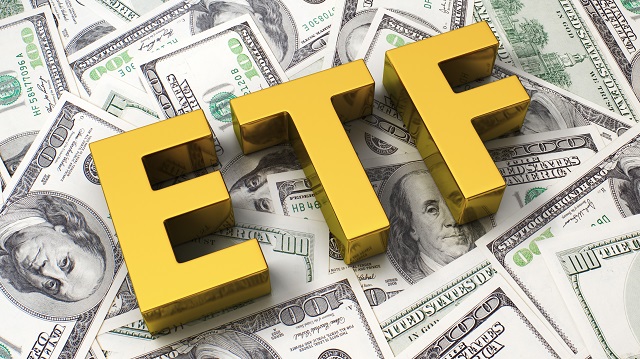
日本ETFへの投資:2025年の日本経済成長を活かすための包括的ガイド
日本に特化した上場投資信託(ETF)への投資は、世界最大かつ最先端経済圏の一つである日本へのエクスポージャーを求めるグローバル投資家にとって戦略的な投資機会となります。トヨタ、ソニー、三菱といった世界的に有名な企業が拠点を置く日本の株式市場は、世界の投資環境において重要な役割を果たしています。日本ETFに投資することで、個別銘柄を選別することなく、コスト効率の高い分散投資で日本市場にアクセスできるようになります。
日本市場の魅力
世界第3位の経済大国である日本は、世界市場において重要な役割を担っています。技術革新、堅調な製造業、そして旺盛な消費者需要で知られる日本は、様々な産業の成長を牽引し続けています。自動車メーカーからIT大手まで、日本は世界で最も革新的な企業を数多く抱えています。しかし、その経済力にもかかわらず、日本は停滞期や高齢化、デフレ圧力といった課題にも直面してきました。
投資家にとって、日本の多様なセクターは成長の可能性を秘めていますが、米国や欧州などの他の先進国市場と比較すると、日本市場はしばしば低迷しています。そこで、日本ETFへの投資が重要な役割を果たす可能性があります。ETFは、日本市場へのエクスポージャーを確保しながら、多くの企業や業界にリスクを分散させるという点で、重要な役割を果たします。
日本ETFとは何ですか?
上場投資信託(ETF)は、複数の投資家から資金を集め、分散投資された証券ポートフォリオを購入する投資商品です。日本ETFは、日本の株式市場またはその中の特定のセクターを表す指数に連動します。大型株、中型株、小型株、テクノロジーや自動車などの特定セクター、あるいはロボット工学やヘルスケアなどの業界に特化したテーマ型投資など、様々な投資機会を提供します。
日本ETFの種類
-
幅広い市場ETFこれらのファンドは、日本株式市場全体のパフォーマンスを反映する指数に連動します。日経平均株価とTOPIXは、日本株全般を対象としたETFが追跡する最も一般的な指数です。これらのETFは、幅広い日本企業へのエクスポージャーを提供し、日本経済全体のパフォーマンスを効率的に捉える手段を提供します。
-
例: ザ・シャイアーズ・マスキー・ジャパンTF(交換) は、日本株ETFの中でも最大規模かつ最も取引量の多いETFの一つです。様々なセクターの大型株・中型株を含むMSCIジャパン指数に連動します。同様に、SPDR MSCIジャパンETF(JPN)とバンガードFTSEジャパンETF(VJPN)も、幅広い日本企業へのエクスポージャーを提供しています。
-
-
セクター別ETF日本には、自動車、テクノロジー、消費財など、特定のセクターにおいて世界最大級の企業が数多く存在します。一部のETFはこれらのセクターをターゲットとしており、投資家が日本が競争優位性を持つ業界に集中できるよう支援しています。
-
例Global X MSCI Japan Consumer Discretionary ETFやiShares MSCI Japan Information Technology ETFなどのETFは、それぞれ日本の消費財セクターとテクノロジーセクターに的を絞ったエクスポージャーを提供します。
-
-
テーマ型ETFこれらのファンドは、ロボット工学、自動化、日本の高齢化といった特定の投資テーマに焦点を当てています。ロボット工学と自動化における日本の世界的なリーダーシップを踏まえ、一部のテーマ型ETFはこれらの分野に焦点を当てており、投資家にニッチな成長産業への投資機会を提供しています。
-
例iShares Robotics and AI ETF(IRBO)は、グローバルな投資対象でありながら、ロボット工学、自動化、人工知能(AI)分野で優れた実績を持つ日本企業を組み入れています。このテーマ特化により、大きなイノベーションと成長が見込まれるセクターへの独自のエクスポージャーを提供します。
-
なぜ日本ETFに投資するのか?
日本ETFへの投資は、特に国際的な分散投資や特定の経済セクターへのエクスポージャーを求める投資家にとって、多くのメリットをもたらします。以下は、日本に特化したETFを検討する価値がある主な理由です。
1. 多様化のメリット
日本は広大で多様な市場であり、経済は単一の産業だけに依存しているわけではありません。日本ETFに投資することで、自動車、テクノロジー、消費財、資本財など、幅広いセクターへのエクスポージャーを得ることができます。この分散投資により、単一のセクターや企業への投資に伴うリスクが軽減され、ETFはよりバランスの取れた、より安全な日本への投資手段となります。
2. グローバルリーダーとの交流
日本企業は様々な業界で世界をリードしています。例えば、トヨタは世界最大級の自動車メーカーの一つであり、ソニーは家電製品の大手企業です。日本ETFに投資することで、個別株への投資に伴う煩雑な手続きを経ることなく、これらの世界的な大企業に投資することができます。
3. 魅力的な評価と成長の可能性
日本は数十年にわたるデフレと低成長に直面しており、その結果、多くの日本企業のバリュエーションは相対的に低くなっています。投資家にとっては、バリュエーションが低い企業は経済が回復すれば高いリターンを得られる可能性があるため、これは買いの機会となる可能性があります。さらに、ロボット工学、自動化、再生可能エネルギーといった分野における日本のリーダーシップは、長期的な成長機会を大きく広げています。
4. 経済の安定とイノベーション
日本は様々な課題に直面しながらも、様々な産業でイノベーションを続けています。特にロボット工学、人工知能、電気自動車といった分野で、日本は技術革新の最前線に立っています。先進的なインフラ、高度な教育を受けた労働力、そして政府によるイノベーション支援を背景に、日本は依然として世界経済における重要なプレーヤーであり続けています。日本のテクノロジーセクターやその他の将来有望な産業に焦点を当てたETFは、大きな上昇余地をもたらす可能性があります。
考慮すべきリスク
日本には多くの投資機会がありますが、日本のETFへの投資にはリスクが伴うことを認識しておくことが重要です。
1. 経済停滞
日本経済は過去30年間の大部分において、高齢化や出生率の低下といった人口動態要因の影響により停滞期にあります。この停滞は経済成長の鈍化とデフレ圧力につながり、企業収益や日本ETFのパフォーマンスに悪影響を及ぼす可能性があります。
2. 通貨リスク
海外投資家にとって、外国市場への投資において為替リスクは重要な要素です。日本円(JPY)は変動が激しく、自国通貨に対する円の価値の変動は投資収益に影響を与える可能性があります。円高は外国人投資家にとって、自国通貨に換算した際の収益を低下させる可能性があり、円安は逆の影響を与える可能性があります。
3. 政治リスク
日本は政治的に安定しているものの、政策の変更や自然災害などの予期せぬ事態が市場にリスクをもたらす可能性があります。また、日本は輸出に大きく依存しており、国際貿易協定や経済関係の変化は日本企業の収益性に影響を及ぼす可能性があります。
日本ETFへの投資方法
日本ETFへの投資は比較的簡単です。投資家は証券口座を通じてこれらのファンドを売買することができ、グローバル市場へのアクセスが可能です。日本ETFは、東京証券取引所(TSE)やニューヨーク証券取引所、ナスダックなどの米国証券取引所を含む主要取引所で取引されています。
投資の手順:
-
ブローカーを選択: 日本に特化したものも含め、国際的な ETF へのアクセスを提供する証券会社を選択してください。
-
適切なETFを選ぶ: 投資目標に基づいて、リスク許容度と日本への希望エクスポージャーに一致する ETF を選択します。
-
投資を監視する: 日本の経済動向、通貨の変動、政治や市場の大きな変化に注目しながら、ETF のパフォーマンスを定期的に確認してください。
税務上の考慮事項
投資を始める前に、外国ETFへの投資に伴う税務上の取り扱いについて理解しておくことが重要です。日本では配当とキャピタルゲインに課税されるため、自国と日本の間の租税条約を考慮することが重要です。多くの証券会社がこれらの税務問題への対応を支援してくれますが、コンプライアンス確保のために税務専門家に相談することをお勧めします。
結論
日本ETFへの投資は、日本経済の成長を享受する、分散投資とコスト効率の高い方法です。幅広い市場指数への投資をお考えの場合でも、テクノロジーやロボティクスといった特定のセクターへの投資をお考えの場合でも、日本ETFは世界で最も革新的で影響力のある経済圏の一つである日本へのエクスポージャーを提供します。経済停滞や為替変動などのリスクはありますが、日本市場の長期的な成長ポテンシャルは、分散投資と潜在的な利益拡大を求める投資家にとって魅力的な選択肢となります。常にそうであるように、徹底的な調査を行い、投資目的とリスクプロファイルに合った適切なETFを慎重に選択することが重要です。













